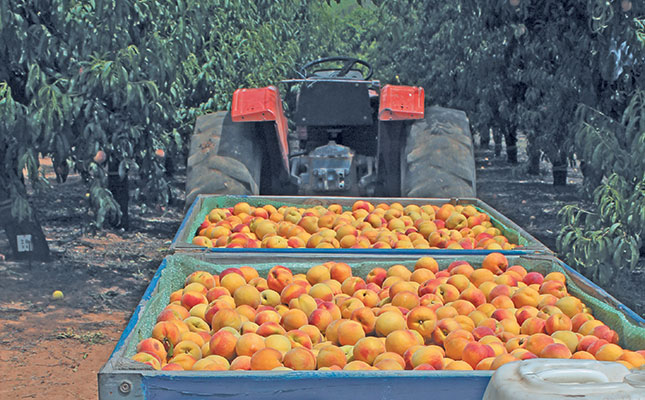
Photo: FW Archive
Jacques Jordaan, CEO of the Canning Fruit Producers’ Association (CFPA), said during an information session held near Rawsonville on Wednesday (22 June) that Tiger Brands had initially decided to divest from the factory two years ago.
The company stated at the time that canned fruit production did not align with its greater brand strategy, and did not produce high enough returns for its shareholders.
A consortium of 160 farmers then started negotiations with the company to acquire the factory, and even took “pay-cuts” when the company decided to change its payment model, to improve the profitability of the factory.
Anthony Dicey, chairperson of the CFPA, said the prices that its members received for their fruit had remained unchanged for the past two years.
Jordaan added that negotiations had reached a stalemate after the consortium struggled to secure funding, due to the poor state of the country’s economy, and the high risk associated with agricultural production.
The consortium then started looking for an alternative means of raising funding, a process that was cut short when the company notified suppliers, workers and the Langeberg municipality on 10 June of its intention to shut down the 70-year-old fruit canning factory, giving the farmers only until August to raise funds.
With the future of the factory hanging in the balance, farmers were also grappling with deciding whether it was still worth managing their orchards, with reports already abounding of labour brokers struggling to find jobs for pruning teams.
Jordaan was unable to disclose the full terms of the potential take-over because of a non-disclosure agreement with Tiger Brands, but confirmed that the consortium needed R200 million to R300 million to cover the operational costs of the factory and prevent a shutdown.
Consortium members had already managed to raise about R60 million over the past year by committing R1 000/t of fruit delivered towards the initiative.
“We have everything else in place, even a business plan, which Tiger Brands helped us to put together.”
For now, the consortium would continue its weekly meetings with Tiger Brands and try to stall the closure of the factory by a year, he said. “We need more time to raise [funding], whether this comes from the private or public sector.”
Jordaan added that he believed government should “also come to the table”, as it was impossible for farmers to carry this socio-economic burden on their own.
“Despite all the current [talk] about the potential of agro-processing to breathe new life into the economy and the agro-processing master plan, [as well as] the opportunity of putting shares in one of the world’s leading canning factories into the hands of previously disadvantaged people, efforts to engage government for funding had been fruitless until now.”
Jordaan said that the factory employed 250 permanent workers and 4 300 seasonal workers during peak operations, with most of Ashton’s economy built around the factory.
The closure would also affect other surrounding towns such as Robertson, Bonnievale and Wolseley, which would leave an estimated 300 farmers without a market for about 2 250ha of fruit, which in turn would result in more than 2 000 permanent and thousands of seasonal on-farm jobs being lost.
The consortium would also try to secure a transition agreement with Tiger Brands to allow it to run the factory, he said.












